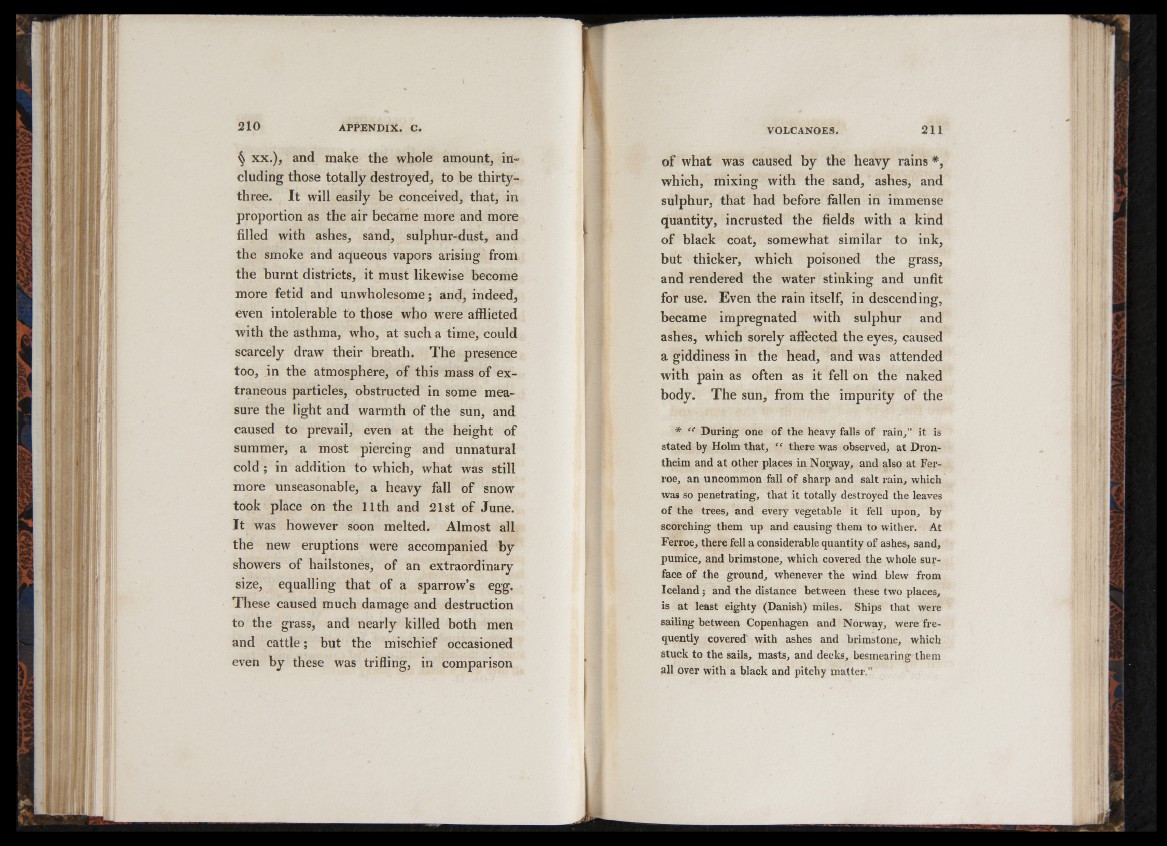
§ xx.), and make the whole amount, including
those totally destroyed, to be thirty-
three. It will easily be conceived, that, in
proportion as the air became more and more
filled with ashes, sand, sulphur-dust, and
the smoke and aqueous vapors arising from
the burnt districts, it must likewise become
more fetid and unwholesome; and, indeed,
even intolerable to those who were afflicted
with the asthma, who, at such a time, could
scarcely draw their breath. The presence
too, in the atmosphere, of this mass of extraneous
particles, obstructed in some measure
the light and warmth of the sun, and
caused to prevail, even at the height of
summer, a most piercing and unnatural
cold ; in addition to which, what was still
more unseasonable, a heavy fall of snow
took place on the 11th and 21st of June.
It was however soon melted. Almost all
the new eruptions were accompanied by
showers of hailstones, of an extraordinary
size, equalling that of a sparrow’s egg.
These caused much damage and destruction
to the grass, and nearly killed both men
and cattle; but the mischief occasioned
even by these was trifling, in comparison
of what was caused by the heavy rains *,
which, mixing with the sand, ashes, and
sulphur, that had before fallen in immense
quantity, incrusted the fields with a kind
of black coat, somewhat similar to ink,
but thicker, which poisoned the grass,
and rendered the water stinking and unfit
for use. Even the rain itself, in descending,
became impregnated with sulphur and
ashes, which sorely affected the eyes, caused
a giddiness in the head, and was attended
with pain as often as it fell on the naked
body. The sun, from the impurity of the
* ** During one of the heavy falls of rain,” it is
stated by Holm that, “ there was observed, at Dron-
theim and at other places in Norjvay, and also at Fer-
roe, an uncommon fall of sharp and salt rain, which
was so penetrating, that it totally destroyed the leaves
of the trees, and every vegetable it fell upon, by
scorching them up and causing them to wither. At
Ferroe, there fell a considerable quantity o f ashes, sand,
pumice, and brimstone, which covered the whole surface
of the ground, whenever the wind blew from
Iceland; and the distance between these two places,
is at least eighty (Danish) miles. Ships that were
sailing between Copenhagen and Norway, were frequently
covered' with ashes and brimstone, which
stuck to the sails, masts, and decks, besmearing them
all over with a black and pitchy matter.”